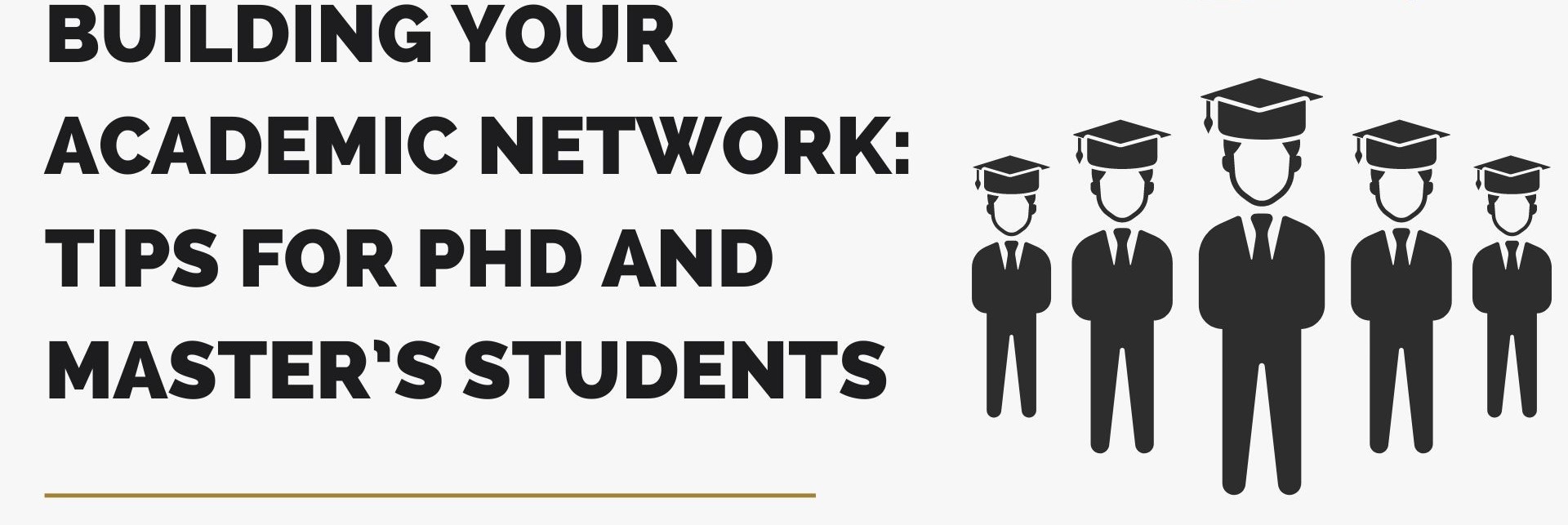
The key to success in academia is networking. To a PhD and Master's student, having a strong academic network opens the way for many valuable opportunities, solid collaboration, and professional development.
The key to success in academia is networking. To a PhD and Master's student, having a strong academic network opens the way for many valuable opportunities, solid collaboration, and professional development. This is a post on how to establish a great academic network and maintain it with peers, mentors, and other relevant professionals, as well as actionable tips for connecting with others in your field. We shall point out ways by which mobilizing the networks can benefit your research and career development.
A. Why Networking Matters
Networking in academia is the art of developing relationships with those who will become colleagues, mentors, and professionals and help facilitate your research and career further. Efficient networking can lead to project collaboration, job opportunities, access to resources, and expertise.
B. Long-Term Benefits
Developing a strong academic network has the following benefits in career advancement and professional development. This kind of networking will improve your capacity as far as being updated with recent developments in your niche, finding new research areas, and increasing your professional influence.
C. Common Misconceptions
There are common misconceptions that academic networking is all about self-promotion or that it's only for extroverts. In reality, it means developing actual relationships based on mutual support.
How HAMNIC Solutions Can Help
At HAMNIC Solutions, we appreciate that part of your academic success lies in the ability to network. We can help you strengthen your research and networking through:
A. Academic Conferences and Workshops
Conferences and workshops are indeed excellent means to meet your peers and even mentors in areas of your interest. You must prepare for this so that it enables you to get the most out of such networking opportunities.
B. Online Communities
Online communities and forums that are academic in nature can serve as means of networking with peers and professionals across the globe. Create online groups and actively network.
C. Finding and Networking with Mentors
This guidance and support can be found by finding and making connections with mentors who will be instrumental in your academic journey. Find potential mentors, and develop meaningful relationships with them.
D. Join Professional Organizations and Societies
Professional organizations/societies provide networking opportunities and resources for academic and career development. The more you get involved, the more you will benefit from what they have to offer.
E. Tap into Your Current Network
Your current network may be helpful in this respect as they can be utilized to expand your academic network. Use existing relationships for referrals to new contacts and opportunities.
How HAMNIC Solutions Can Help
HAMNIC Solutions can facilitate your networking with its services in the following areas:
A. Create an Elevator Pitch
An elevator pitch is a short, engaging summary of your research and interests. Once you have developed your pitch, practice it so that you are able to explain clearly and confidently your work and goals in any networking environment.
B. Develop Authentic Relationships
Develop real, two-way relationships rather than contact accumulation. Engage in meaningful dialogues with them and help others on your network.
C. Follow Up and Maintain Connections
Follow-ups are equally important for maintaining and expanding your network following first meetings. Follow up with thank-you notes or follow-up emails that will further keep the conversation alive.
D. Attend Networking Events
Events such as academic mixers or professional meetups are opportunities to network with others in your field. Use the events to expand your network and find new collaborations.
E. Use Networking Tools and Platforms
Extend and build your academic network with the use of professional networking tools and platforms. These tools, like LinkedIn and ResearchGate, have features to link peers and professionals.
How HAMNIC Solutions Can Help
HAMNIC Solutions makes it easier for you to network because
A. Extroversion
If you're an introvert, then networking can be hard. Tactics to navigate networking situations comfortably and effectively.
B. Networking Overload Management
Network overload can be too much to handle, especially when it is combined with other commitments. Learn how to prioritize and manage your network activities to avoid exhaustion.
C. Handling Rejection
One should be prepared for rejection or no response at all when it comes to networking. Graceful responses to rejections and using them as learning points are desirable.
D. Ethical Considerations
Be ethical in your networking. Be forthright, respectful, and professional in all conduct.
How HAMNIC Solutions Can Help
The services of HAMNIC Solutions are here to help you sail through these brutal times of networking by providing:
A. Seek Research Collaborations
Leverage your network to discover possible collaborators for your research projects. Such collaborative efforts might gain you both better quality and impact for your research.
B. Access Job Opportunities
Leverage your network to learn about new job openings, internships, and fellowships. Networking may act as a very substantial lead and recommendation source for career advancement.
C. Win Research Funding
D. Expand Your Academic Reach
How HAMNIC Solutions Can Help
HAMNIC Solutions supports career advancement with:
Building a strong academic network is essential for PhD and Master's students to maximize research potential, career development, and the graduate school experience. By engaging in academic events, joining virtual communities, and finding mentorship, you can unlock valuable opportunities through meaningful connections.
At HAMNIC Solutions, we are committed to supporting your academic journey. Our expert writing and editing services will help you prepare for conferences, refine research materials, and manage networking tasks. Visit HAMNIC Solutions to learn more about how we can assist you in building a robust academic network to achieve your research and career goals. Focus on meaningful connections and promote your academic and professional aspirations.